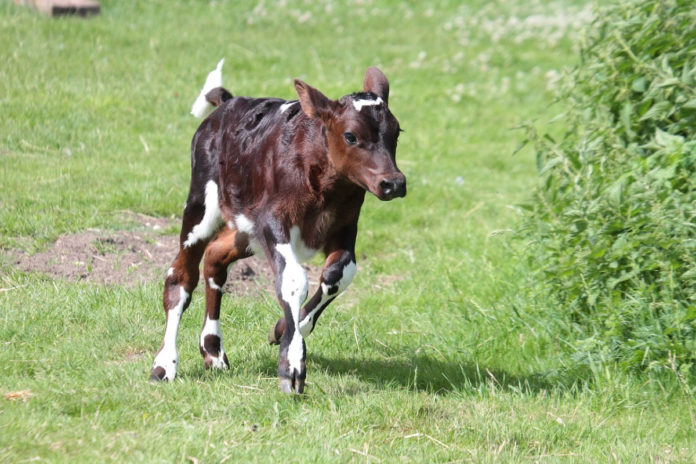In this article, we include some of the first reactions to RTÉ’s Investigates programme, ‘Milking it: Dairy’s Dirty Secret’, which screened last night, Monday, July 10th, 2023.
The RTÉ investigation has been led by Fran McNulty, who previously held the position of agriculture and consumer affairs correspondent for RTÉ News, and now presents Prime Time.
Firstly, Charlie McConalogue T.D, Minister for Agriculture, Food and the Marine, said that he “strongly condemns” the shocking practices on RTÉ Investigates last night.
He stressed that they were certainly not reflective of the work that farmers put into managing their farm enterprises responsibly. “Farmers care for their animals and would never want to see them mistreated.”
“As a minister, I have worked with stakeholders on a range of measures to improve calf welfare, and farmers and the industry are embracing these measures.”
“The footage shown by RTÉ represents the actions of a few. What we saw was utterly unacceptable, and in some instances, was unlawful.”
McConalogue confirmed that his department has requested RTÉ provide it with all of the footage available, and any other information it has, so that it can “investigate the matter fully and take appropriate action”.
ICMSA reacts
Meanwhile, the president of ICMSA, Pat McCormack, said that in common with every other viewer, he and his members found the issues and footage addressed in the programme to be “disturbing and disappointing”.
McCormack said that the clear laws and regulations set out around the question of animal welfare must be enforced, and sanctions – up to and including prosecution – must follow where clear evidence was present.
He said that a clear chain of responsibility and regulation existed, and following that chain brought us “quickly and decisively” to the body within whose remit fell all aspects of animal welfare: the Department of Agriculture, Food and the Marine.
“In the first instance, the blame and culpability for this mistreatment lies absolutely with the individuals involved and those supervisors who may have had knowledge of these cruel practices, but who failed to act.”
“ICMSA expects the Department to now investigate fully, and we know that they will be thorough and fair.”
McCormack said that ICMSA and farmers, in general, rejected categorically any suggestion that this kind of abuse was widespread or a norm.
He added that the welfare and health of their stock was the standard by which farmers rated and judged each other.
Address wrongdoing and wrongdoers
He has appealed for those both reporting the story and responding to the issues raised, to address the specific wrongdoing and wrongdoers and not to “go their usual route, where a vast majority was made pay for the abuse perpetrated by the few”.
“This is important, and we’d ask both the media and authorities covering this to avoid their usual trick, where – rather than dealing with the small number of individuals who are flouting the regulations.”
“We get a whole new layer of regulations loaded onto the 18,000-odd dairy farmers who are already obeying all the rules around calf welfare.”
“In the same way, as it’s unfair and wrong to target everyone in a broadcaster for the errors and misjudgement of a few, it is similarly unfair and wrong to find 18,000 dairy farmers culpable for the wrongs and abuses perpetrated by a small number”, said Mr. McCormack.
Billy Kelleher
Meanwhile, Fianna Fáil MEP Billy Kelleher has said he is “disgusted and dismayed” at the incidents of animal abuse in the programme.
Kelleher, one of the European Parliament’s lead negotiators when it last reviewed animal transport regulations, said that in the first instance, if the perpetrators of this abuse can be identified, they should be prosecuted under both EU regulation 1/2005 and under domestic animal cruelty legislation.
“I welcome the Department of Agriculture’s decision to start investigations into the marts in question. This is the bare minimum.”
“However, I do think that random, spot checks need to be carried out at all marts in order to get a fuller picture of the situation.”
“Those managing marts and those buying and selling at marts need to know that there is always a chance of them being caught engaging in animal abuse. It is one sure way of increasing compliance with the law.”
“However, we need a culture change in terms of animal welfare and husbandry in Ireland. This may require a form of mandatory Continuous Professional Development (CPD) akin to a refresher Green Cert for farmers and transporters.”
“The vast majority of livestock farmers and transporters in Ireland care for and look after their animals. They, like me, will be disgusted at what they saw in this TV programme.
“What is very concerning to me is the fact that others in the vicinity took no action to stop the abuse. If farmers do not start self-policing illegal behaviour, it will require stricter enforcement of existing regulations, and more restrictive measures and stronger sanctioning in the European Commission proposal later this year.
Abuse of animals
Abuse of animals must result in the toughest of penalties up to and including prison terms, he believes.
The MEP said that rural Ireland’s economy and prosperity depend on its ability to transport animals between farms, to marts and off the island.
He is calling on the farm organisations and the Department of Agriculture to take a zero-tolerance approach to animal abuse.
“To do otherwise is ethically and morally wrong, and runs the risk of seriously destabilising the sector and risking local jobs,” concluded Kelleher.





